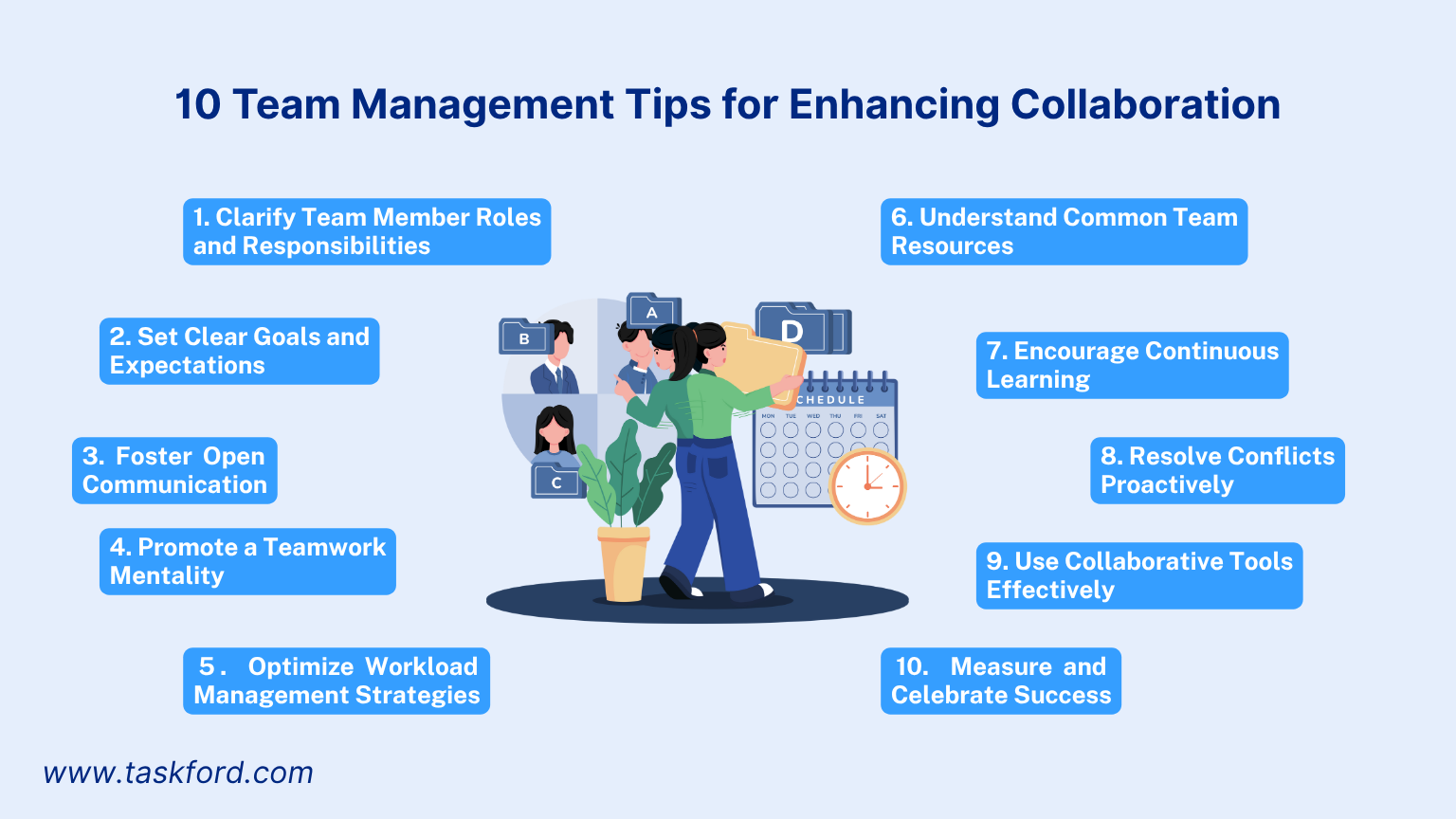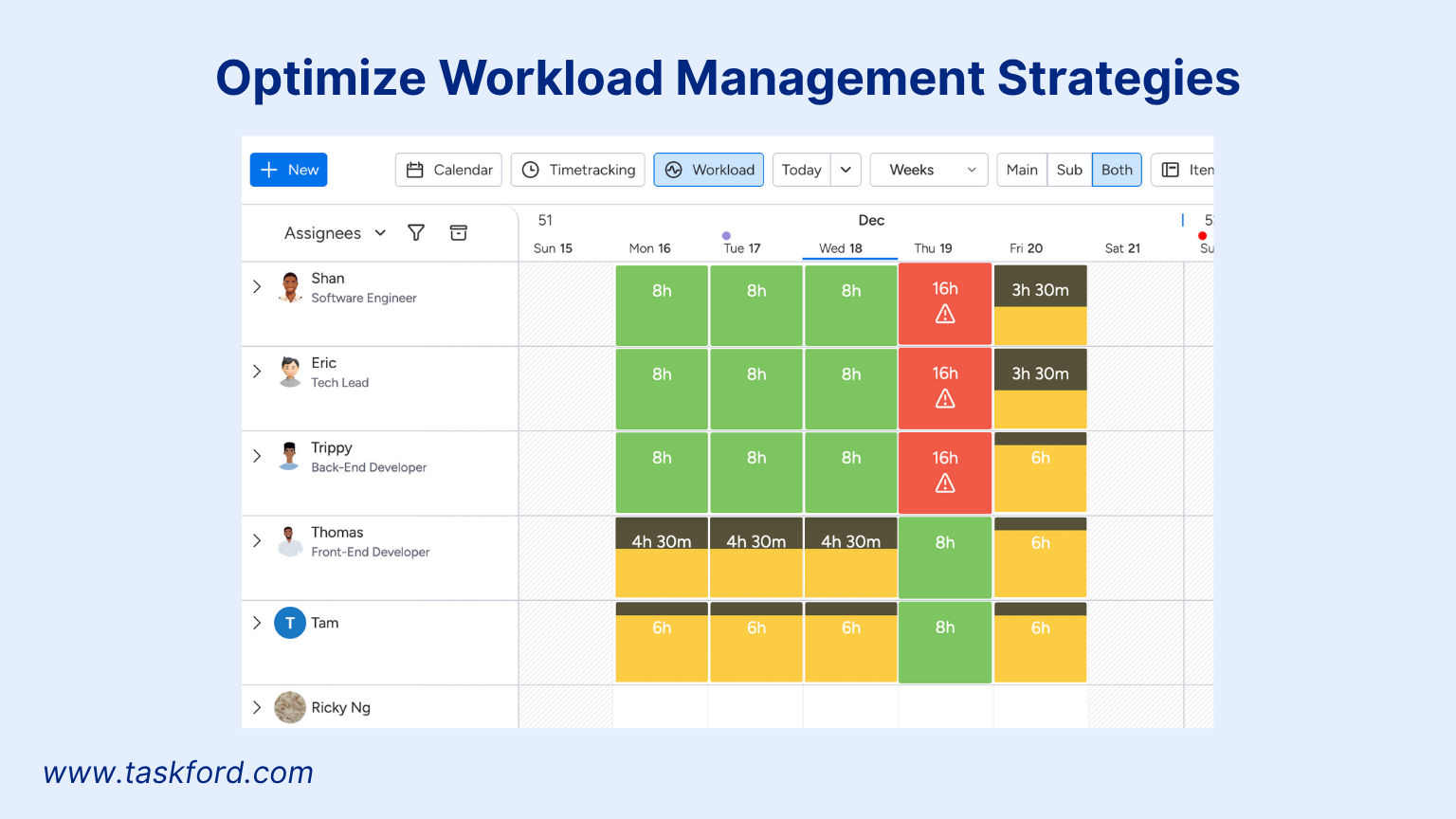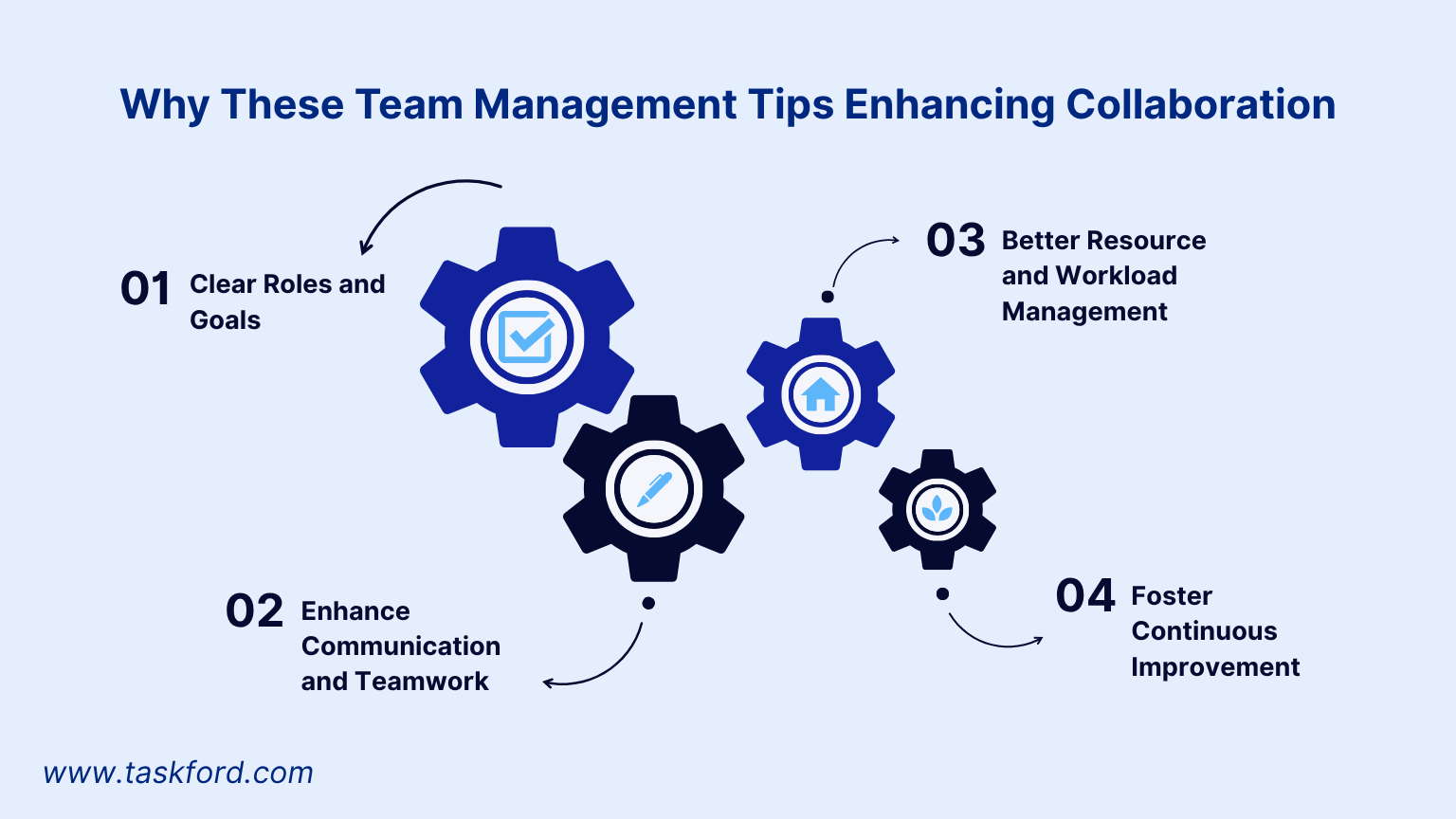10 Proven Team Management Tips for Enhancing Collaboration in 2025
Explore 10 team management tips for managers to enhance teamwork, optimize common team resources, and drive project success.
Effective team management is critical for driving project success and fostering a productive work environment. As workplaces evolve with hybrid models, Agile methodologies, and diverse teams, collaboration remains at the heart of high-performing teams. This article shares 10 proven team management tips, grounded in practical experience, to help managers foster a teamwork mentality, optimize team member roles, and drive success in 2025. Whether you’re leading a small team or managing cross-functional groups, these tips will help you build stronger teams and promote working well together.
Why Collaboration Matters in Team Management
Collaboration is a cornerstone of effective team management. It’s a crucial element that influences how teams perform, innovate, and achieve their goals. When team members work well together, they share ideas, solve problems faster, and achieve project goals efficiently.
In 2025, with remote work and cross-functional teams becoming the norm, managers must prioritize strategies that promote teamwork and align resources effectively. Below, we explore 10 actionable tips to strengthen collaboration, driving success.

1. Clarify Team Member Roles and Responsibilities
Clear team member roles are the foundation of effective collaboration. When everyone understands their responsibilities, overlap and confusion decrease, allowing teams to work efficiently.
How to Implement
- Define Roles Early: At the project’s start, outline each member’s role, including specific tasks and decision-making authority. Use tools like RACI charts (Responsible, Accountable, Consulted, Informed) to clarify expectations.
- Align with Strengths: Assign tasks based on individual skills and experience to maximize productivity and engagement.
- Communicate Regularly: Revisit roles during team meetings to ensure alignment as project needs evolve.
By defining team member roles clearly, you set the stage for working well together and prevent bottlenecks. Learn more about optimizing roles in our guide on resource allocation.
2. Set Clear Goals and Expectations
A successful team needs clear goals to stay focused. Well-defined objectives provide direction and help prioritize tasks, ensuring efficient use of time and resources.
Actionable Steps
- Use SMART Goals: Ensure goals are Specific, Measurable, Achievable, Relevant, and Time-bound.
- Break Down Objectives: Divide large goals into smaller milestones to maintain momentum.
- Involve the Team: Encourage input during goal-setting to foster ownership and a teamwork mentality.
3. Foster Open Communication
Communication is the backbone of working well together. Teams that communicate openly share ideas, address issues early, and stay aligned on project objectives.
Tips for Success
- Establish Channels: Use tools like Slack or Microsoft Teams for real-time communication and project management software for updates.
- Encourage Feedback: Create a safe space for team members to share concerns or suggestions without fear of judgment.
- Schedule Regular Check-Ins: Weekly progress reviews or daily huddles keep everyone informed and engaged.
4. Promote a Teamwork Mentality
A strong teamwork mentality drives collaboration and helps teams overcome challenges. It’s about creating a culture where team members support each other and prioritize collective success.
How to Promote a Teamwork Mentality
- Lead by Example: Show commitment to team goals and demonstrate collaboration in your actions.
- Celebrate Wins Together: Recognize both individual and team achievements to boost morale.
- Encourage Peer Support: Pair team members for tasks to foster collaboration and knowledge sharing.
5. Optimize Workload Management Strategies
Balancing workloads is critical for preventing burnout and ensuring efficient use of team resources. Effective workload management strategies help managers allocate tasks fairly and keep projects on track.

Practical Approaches
- Assess Capacity: Use Resource managementtools like TaskFord, Asana, or Trello to track team capacity and avoid overloading individuals.
- Adjust Dynamically: Reassess workloads during regular reviews to adapt to changing priorities, ensuring no team member is overwhelmed.
6. Understand Common Team Resources
Knowing what some common team resources are, such as time, skills, tools, and budgets, helps managers allocate them effectively. Mismanaging resources can lead to delays and frustration.
Key Resources to Manage
- Human Resources: Skills and availability of team members.
- Tools and Technology: Software, hardware, or platforms needed for tasks.
- Time and Budget: Constraints that impact project scope and delivery.
By understanding common team resources, managers can make informed decisions to support what makes a successful team
7. Encourage Continuous Learning
Teams that grow together thrive together. Encouraging continuous learning keeps team member roles relevant and fosters team improvement ideas that drive innovation.
How to Support Learning
- Offer Training: Provide access to workshops or online courses on project management or collaboration tools. For example, a course on time management can enhance efficiency.
- Share Knowledge: Create opportunities for team members to teach each other, such as during sprint retrospectives.
- Stay Updated: Encourage teams to explore emerging trends, like AI-driven project tools, to stay competitive in 2025.
Continuous learning aligns with kinds of teamwork that emphasize adaptability and growth.
8. Resolve Conflicts Proactively
Conflicts can disrupt collaboration and derail projects. Addressing issues quickly and fairly is essential for maintaining a teamwork mentality.
Conflict Resolution Tips
- Listen Actively: Understand all perspectives before proposing solutions.
- Focus on Solutions: Avoid blame and work toward outcomes that benefit the team.
- Set Ground Rules: Establish team norms early to prevent recurring issues.
Proactive conflict resolution is a key team management tip that supports working well together.
9. Use Collaborative Tools Effectively
The right tools enhance kinds of teamwork by streamlining communication and task management. Choosing tools that fit your team’s needs can boost efficiency and collaboration.
Tool Tips
- Select User-Friendly Tools: Choose platforms like TaskFord, Monday.com or ClickUp that simplify task tracking and communication.
- Train the Team: Ensure everyone knows how to use tools effectively to avoid confusion.
- Integrate Tools: Use tools that connect with existing systems to streamline workflows.
Effective tool use aligns with how to promote teamwork by keeping teams organized and connected.
10. Measure and Celebrate Success
Tracking progress and celebrating achievements reinforce what makes a successful team. It also motivates team members to stay engaged and committed.
How to Measure Success
- Track KPIs: Monitor metrics like project completion rates, team satisfaction, or resource utilization.
- Gather Feedback: Use surveys or one-on-one meetings to assess team morale and collaboration.
- Celebrate Milestones: Acknowledge completed sprints or project phases with team shout-outs or small rewards.
Celebrating success ties into team improvement ideas by reinforcing positive behaviors and outcomes.
How These Tips Enhance Collaboration

These team management tips work together to create a collaborative environment where teams thrive. Here’s how they contribute to working well together:
- Clear Roles and Goals: Defining team member roles and setting clear goals ensures everyone is aligned, reducing confusion and boosting efficiency.
- Communication and Teamwork: Open communication and a strong teamwork mentality foster trust and collaboration, essential for kinds of teamwork.
- Resource and Workload Management: Understanding common team resources and applying workload management strategies optimizes team performance and prevents burnout.
- Continuous Improvement: Encouraging learning and addressing conflicts proactively drives team improvement, ideas that keep teams adaptable and engaged.
Conclusion
Effective team management in 2025 hinges on fostering collaboration through clear communication, strategic resource use, and a strong teamwork mentality. By implementing these 10 team management tips, managers can enhance teamwork, optimize common team resources, and drive project success. Whether leading a small team or a diverse group, these strategies create a collaborative environment that thrives.
By focusing on what makes a successful team and incorporating team improvement ideas, you’ll build a cohesive, productive team ready for the challenges of 2025.
Subscribe for Expert Tips
Unlock expert insights and stay ahead with TaskFord. Sign up now to receive valuable tips, strategies, and updates directly in your inbox.